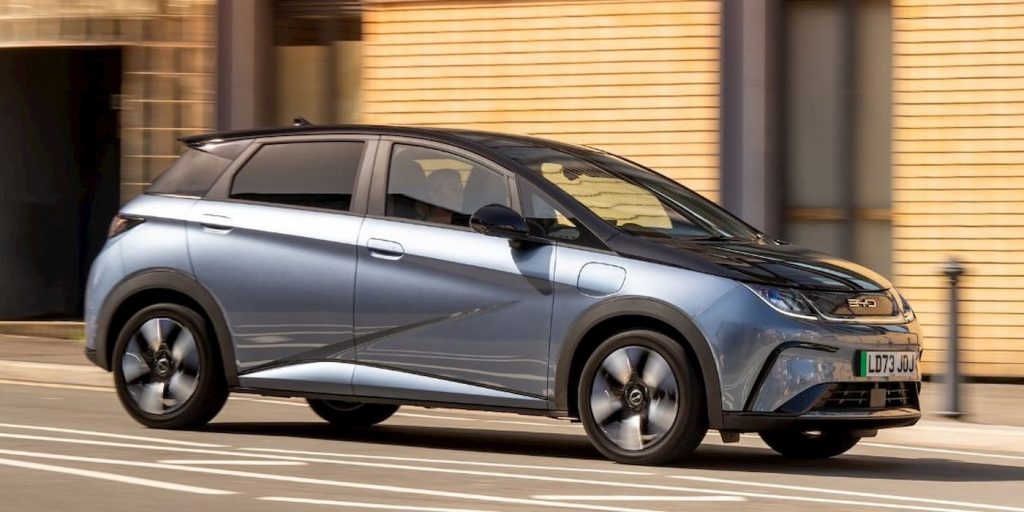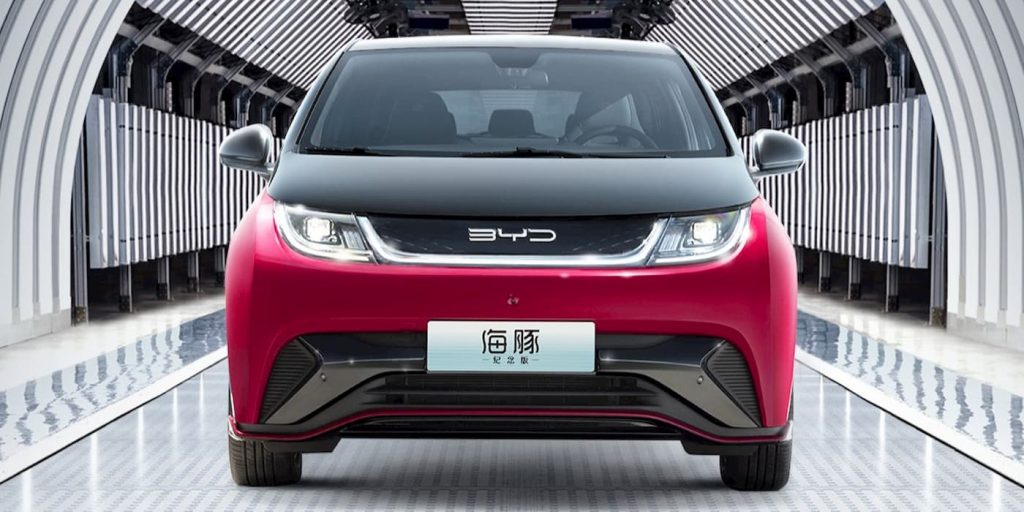
BYD, or “Build Your Dreams,” is unlike many auto manufacturers, which is part of the reason behind its success. As the EV maker expands overseas, BYD America CEO Stella Li believes the company has an advantage.
BYD brings affordable EVs to North America
At the launch of BYD’s affordable Dolphin electric hatchback in Brazil, MotorTrend caught up with Li to discuss Chinese EVs and expanding overseas.
“A Chinese car wants to give them extra value in the interior design, extra value on innovation, and high tech,” Li explained when asked how overseas buyers will see Chinese electric cars.
Li gave the example of BYD’s Dolphin. BYD launched the Dolphin EV in Mexico last week, starting at MXN 539,990 ($31,000). The Dolphin is BYD’s fourth all-electric model in the region, joining the Han sedan, Tang SUV, and Yuan Plus electric SUV introduced in June.
Powered by a 70 kW electric motor and 44.9 kWh BYD Blade Battery, the Dolphin offers “class-leading efficiency” of 11 kWh / 100 km.
Despite the affordable price tag, “when you open the door, it’s not cheap,” Li said. The Dolphin has “premium and high-tech” features like voice control to open windows and digital key entry. It even includes karaoke and video games.

Advantages of expanding overseas
Even though BYD does not sell its electric cars in the US (though they do sell electric buses), you may already own some of its products. BYD’s history has helped propel it into the future.
BYD began as a battery company, later venturing into cell phone assembly. The company is now the largest global supplier of rechargeable batteries. As Li explained, “Today, one-third of the smartphone components, all the final phone assembly, all the R&D and design are done by BYD; 20 percent of global phone components are produced by BYD.”

The company also outsources its batteries to other automakers, including Tesla, Toyota, Kia, and others.
As such, BYD is “more like an engineering company,” with 10% of staff being engineers and 11 patents per day being produced.
BYD has transformed into a heavily integrated company. The automaker has specific divisions for every component, like telematics assembly and air conditioners. This has enabled all components in BYD’s Dolphin, except the tires and windows, to be made entirely in-house.

The integration solves many problems that traditional automakers are facing while going electric. If cross-functionality is needed, you can get them together under one roof rather than dealing with third parties. It also can help avoid supply chain disruptions.
Perhaps most importantly, BYD can crank out new models and technology much quicker than rivals by producing its own components.
The average automaker takes around four years to develop a new car from scratch to a finished project. At BYD, it’s 18 months.

When compared to Vietnamese EV maker VinFast in that regard, Li said, “The advantage we have [is that the] Chinese market is a very competitive market.”
The CEO explained, “China is the toughest market, but we are the winner. We use this as a platform for our globalization plan.” Adding, “Every car we bring overseas, we are the winner. We beat every competitor in the Chinese market, which is the toughest market.”
Electrek’s Take
BYD is rapidly expanding in China and abroad with a wide selection of EVs, from affordable to luxury. But its most significant advantage lies in its engineering and tech capabilities.
By producing nearly every component in the Dolphin and other electric cars, BYD can build, ship, update, and more to ensure it’s putting out a competitive product at an affordable price. The 500,000th Dolphin rolled off the assembly line last week as the low-cost electric hatchback gains momentum overseas.
BYD’s profits more than doubled to nearly $1 billion in the second quarter as deliveries surged to a new record.
The Chinese EV maker dethroned Volkswagen as the top automaker in China earlier this year and is looking to carry the momentum into international markets.
Author: Peter Johnson
Source: Electrek



